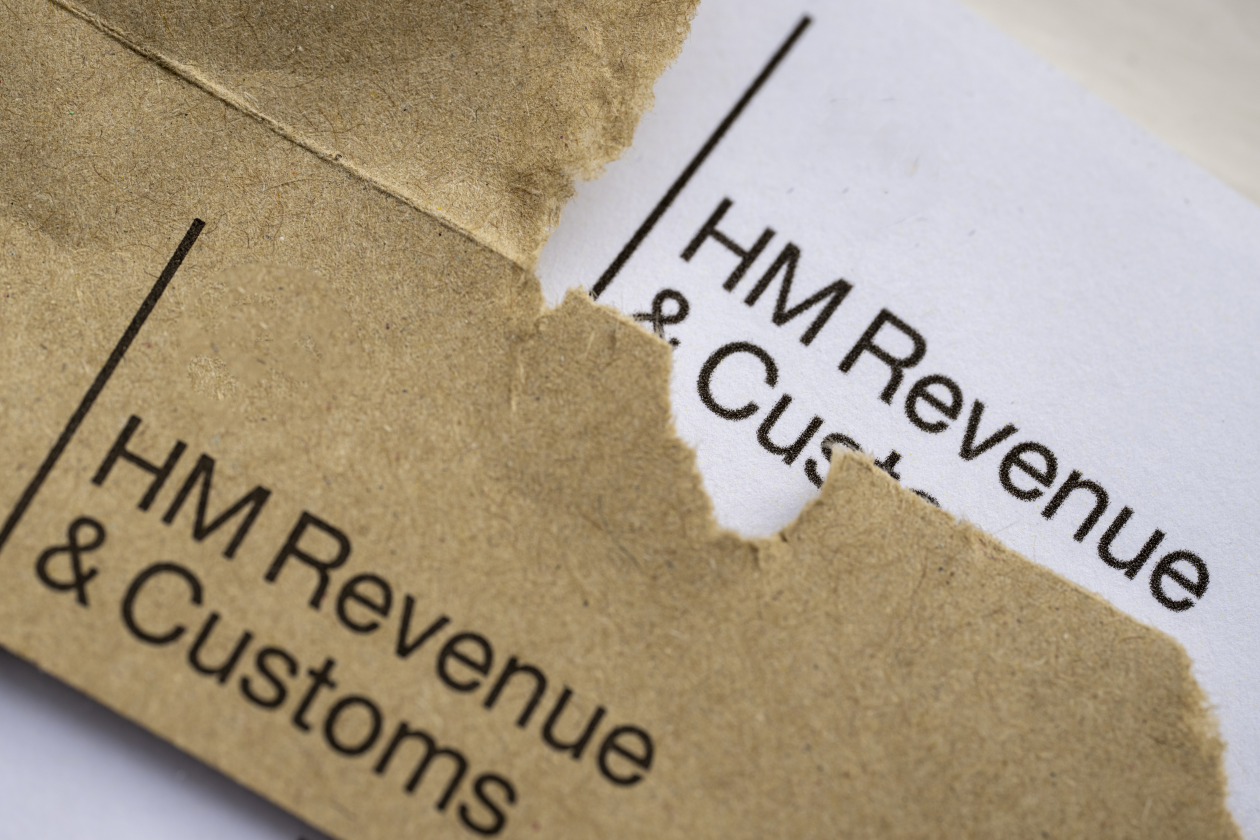Warnings about the tax threats the Autumn Budget might hold have been deafening over the past few weeks, as every possible tweak has been called out.
When you delve deeper into the rumours, they don’t get any less alarming, because some of them come with an eye-watering level of additional tax.
This isn’t personal advice. ISA, pension and tax rules can change, and their benefits depend on your circumstances. Scottish tax rates and bands are also different. If you’re not sure what’s right for you, ask for financial advice or seek advice from a specialist or accountant. You can also usually only withdraw from your pension from 55 (57 from 2028).
Remember, unlike the security offered by cash all investments and any income they produce rise and fall in value, so you could get back less than you invest.
Sign up to our weekly Editor's Choice email to make sure you don't miss out on the key changes from the upcoming Autumn Budget.
Capital gains tax (CGT)
If the CGT rate rises
If you have made a £30,000 capital gain on stocks and shares, right now, after using your £3,000 annual allowance, a basic-rate taxpayer will pay 10% on gains – assuming the gain doesn’t take them over the higher-rate threshold (£2,700) and a higher or additional-rate taxpayer 20% (£5,400).
If the rate was changed to match CGT to income tax, and the allowance remained the same, a basic-rate taxpayer would pay £5,400. A higher-rate taxpayer would pay £10,800 and additional-rate taxpayer £12,150.
Remember, the CGT rate for Scottish taxpayers is currently based on rest of UK bands.
Use our CGT calculator to see how much you might have to pay on your gains.
If the CGT rules on death change
If you have made a £30,000 capital gain on stocks and shares investments during your lifetime, and you give the assets away on death, there’s currently no CGT to pay.
If the CGT rules change, so the estate has to pay CGT on death, if a higher-rate taxpayer passes away with a £30,000 gain, the estate will pay 20% on £27,000 of the gain – or £5,400.
What can you do about CGT in case either of these things happen?
It may make sense to crystalise gains each tax year, as you go along.
You can either sell, wait for more than 30 days, and buy the same assets, or you could sell and buy different assets immediately.
To get even more tax savvy, you can consider moving these investments into a Stocks and Shares ISA, if you have the available ISA allowance, using the Share Exchange (Bed & ISA) process.
With Share Exchange you can sell your shares in your HL Fund and Share account, not forgetting about your CGT allowance, move the cash into the ISA wrapper and buy back the same shares again, all in one instruction.
You have to stick within your overall £20,000 ISA allowance though and before using Share Exchange take any charges into consideration.
But when your investments are in an ISA, you then won’t have to worry about UK income tax or CGT.
You should also look at losses. You can offset losses from the same year, and carry any further losses forward for future years. However, you need to report losses by the end of the fourth tax year after you made them in order to carry them forward.
Income tax
If the income tax freeze remains in place or is extended
The government is highly likely to leave income tax allowances and thresholds untouched, or even extend the freeze even further. It means that every pay rise will mean more people paying more tax, and more tipping over into paying higher rates, as they fall foul of fiscal drag.
What can you do about income tax?
Frozen tax thresholds risk pushing you into a higher tax band, where your personal savings allowance shrinks or disappears overnight, so more people will pay income tax on savings.
If you have savings, it’s worth considering a Cash ISA, where you pay no UK income tax on interest.
You should also consider adding money to a pension, like a Self-Invested Personal Pension (SIPP).
The annual pension allowance is now £60,000 for most people. The fact you get tax relief at your highest marginal rate means higher earners in particular should look to take as much advantage as makes sense for their finances.
If you’re married or in a civil partnership and your partner pays a lower rate of tax, you can transfer income-producing investments into their name. It means you can both take advantage of your tax allowances.
You can also use all the tax-efficient accounts, like your ISAs and pensions. Plus, you can put money away for any qualifying children tax-efficiently in, Junior ISAs and Junior SIPPs.
Inheritance tax (IHT)
If the IHT nil rate band is cut
Currently, the first £325,000 of your estate can be passed on completely IHT free. If you’re leaving the home you live in to children or grandchildren, you also get up to a £175,000 residence nil rate band – so you can leave up to £500,000 altogether before IHT becomes an issue.
Having this allowance brings people an awful lot of comfort, so it’s only natural so many are worried about the risk it could shrink.
It would mean spreading a tax that affects fewer than one in 20 estates to a larger population, which would be incredibly unpopular – and that also therefore makes it less likely.
If you’re single with no children and have an estate worth £325,000, no IHT would be due. If the nil rate band fell to £250,000, and there were no other exemptions to take advantage of, IHT of 40% on £75,000 – or £30,000 – would be payable.
If you can no longer pass your nil rate band to a partner
At the moment, if you’re married or in a civil partnership and you leave everything to your spouse or partner, there’s no IHT to pay on it.
In addition, because you won’t have used your nil rate band or residence nil rate band, you can pass these to your partner too. That means when they die, up to £1 million of their estate will be IHT free.
If you’re married and have a joint estate worth £700,000, including a home worth £350,000, you’d currently pay no IHT if you left everything to your spouse on the first death.
Now let’s say you could no longer pass your nil rate bands to your partner, and still pass everything to your spouse on the first death. They will only be able to cover £500,000 of the estate with their nil rate bands, so might pay 40% tax on £200,000 – or £80,000.
Of course, these are just examples of potential changes we could see. Nothing has been confirmed yet, but it’s worth thinking about what any changes could mean for your family’s IHT bill.
Use our IHT calculator to see how much you might have to pay.
What can you do about IHT?
If you’re worried the government might cut the nil rate band, you can give up to £3,000 away this tax year, which will fall within your annual gift allowance. You can give away larger sums and they’ll be outside of your estate after seven years. There have been rumours that this period could be extended to 10 years, but either way, if you’re going to do it, it’s a good idea to get the clock ticking.
There’s a separate rule that means you can give away surplus income inheritance tax free too. You need to pay it from your regular income and have to be able to afford the payments after meeting your usual living costs.
No account charges or online dealing commission. Other charges depend on investments chosen.
Manage all your family’s accounts with one login
Start from just £100 lump sum or £25 a month
Friends and family can add money once opened by a parent until the child turns 18 and the account then becomes theirs.
If you have children in your life who are under 18, you could consider paying into a Junior ISA for them each year.
This is counted as being given away immediately for IHT purposes, but is tied up until they reach 18 – at which point they can access the money.
Inheritance tax and pensions – what you need to know
At the moment, assets in a pension, like a SIPP, aren’t usually subject to IHT.
This has led to some people choosing to spend down other assets first and keep the pension intact to pass on to their loved ones when they die.
However, rumours persist that the government could change this. And it would mean more people needing to prepare to pay a tax bill that could run into tens of thousands of pounds.
If someone had a pension worth £250,000, on top of an estate that was already worth more than the IHT nil rate band, they could face a 40% tax on the pension.
In this case, as an example, it would leave their loved ones needing to pay up to an additional £100,000 in tax.
What can you do about your pension and IHT?
If the government did change the rules around pensions and IHT, gifting money to loved ones could bump up on your priority list.
This comes with the added bonus that you can actually see them make good use of it while you’re still alive.
However, it’s important that you don’t give so much away that you leave yourself short of money later on.
Income tax as a result of pension tax relief change
The current pension tax relief system provides a great incentive to save into a pension, with pension contributions attracting tax relief at your marginal rate of tax.
This means someone paying higher rate tax gets 40% relief on their contributions and an additional-rate taxpayer gets 45%.
Try our pension tax relief calculator to see how much you could get.
However, if the government opts for a flat rate of pension tax relief, say of 30%, then these groups would likely take a hit.
It means a pension contribution of £1,000 would cost £700 rather than £600 or £550 as it currently does.
However, it would spell good news for those who pay basic-rate tax as the same contribution would currently cost them £800.
What can you do about pension tax relief?
If you’re worried about changes to tax relief, then you could choose to make the most of the system as it currently stands.
You can do this by adding money to your pension before any potential changes come in.
That way you can benefit from the current rates of relief on offer to boost your pension.
Remember though, no changes have been confirmed yet. You shouldn’t be making any rash decisions based on rumours.
The key is to focus on things you can do that you’ll be grateful for in the long run – no matter what happens to taxes and allowances in the Autumn Budget – rather than panicking and rushing into something you come to regret.
If you think you could benefit from getting expert financial advice from a professional, get in touch with our advisory team today. You won't get personal advice on the call, but they'll talk you through the advice service we offer, including charges and connect you with an adviser if you'd like to go ahead.
Our advisers can recommend how you can make the most of your tax allowances through financial planning. But if you need complex tax calculations, your adviser might recommend you speak to an accountant to complement their advice.






